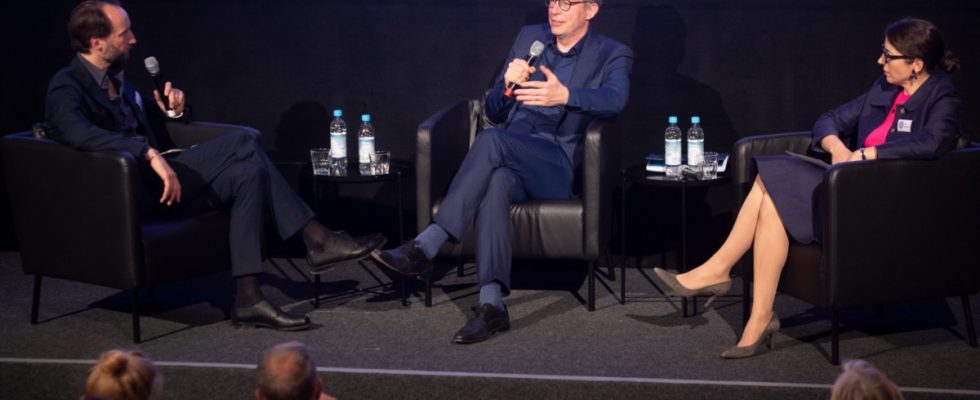The attack hit home: “Millions have already flowed from private sources for foundations such as the Konzerthaus and Biotopia – without it ever having been built,” says Markus Michalke, the entrepreneur, collector, patron and spokesman for the “Initiative Kulturzukunft Bayern” to the minister. “How do you intend to restore trust among donors?”
By answering indirectly, Markus Blume, Minister of State for Art and Science (CSU), apparently thinks that evening at the film school in front of 200 leaders of the Friends and other culture lovers. At Biotopia, problems first had to be solved, Blume explains: The concept “needed to be readjusted” – now, for example, the natural history collections of the Free State would be included in order to fulfill the status of a Leibniz research museum. In addition, the prices for the construction “galloped away”, the drafts were therefore being revised.
In the case of the Konzerthaus, on the other hand, the state government is fully aware of the responsibility that comes with the lease agreement in the Werksviertel, “but the building cannot be realized immediately”. A current cost estimate would only be available in the course of the year, and only then could one “properly divide one’s forces” https://www.sueddeutsche.de/bayern/.”As long as the excavators don’t roll”, that is at least for two to three years, the minister therefore advocates “temporary cultural use” for the property. In other words: something cultural is being built on the property, the only question is what.
Blume does not definitively reject the Free State’s participation in the redevelopment of the municipal Gasteig. However, he points out that this municipal cultural center not only consists of a philharmonic hall, but also of the “municipal library and the Munich adult education center”. Institutions in which the Free State naturally has no interest.
Blume’s cultural agenda is based on three pillars: a “digital cultural education offensive” – and that doesn’t mean “that students are dragged through the museums on a hiking day”. The “Cultural Pact” in which “the Free State, municipalities and private individuals should work hand in hand”. And a “cultural foundation” that is intended to help raise the enormous funds required for necessary renovations and new buildings. Said alienated donors are of course very much in demand.
The “culture cascade”, the renovation schedule that Blume recently presented to the culture committee in the state parliament, is intended to bring order to the sequence. However, you shouldn’t “develop a fetish and only focus on the construction,” says the minister. In order to build up the “modern cultural state”, more is needed: “thinking from the audience’s perspective”, cooperation between the institutions and an administration that sees itself as a “service provider for those interested in culture”.
“I would love to continue,” says Blume
The fact that there are many people interested in culture in Bavaria is shown by the influx that the “Initiative Kulturzukunft” has experienced since it was founded in autumn 2022. Initially, 15 circles of friends of large, primarily state cultural institutions from Munich had joined together. Now there are already 30, including those from Nuremberg, and three from Bamberg are about to be admitted.
Overall, the initiative currently speaks for 15,000 members. A number of people who can develop force, especially during election campaigns. Markus Michalke and his co-moderator of the evening, the cultural manager Anna Kleeblatt, also ask Markus Blume the crucial question: Does he expect to still be in the office of Minister of Arts and Science after the election?
“I would love to continue,” says Blume. “And if I see it correctly, some would be happy about more continuity in this post.” The Prime Minister, Markus Söder, recently even “indicated” that in the Trudering in the marquee. And festival tents, as every child in Bavaria knows, are definitely part of the culture in this country. No matter how modern the cultural state, it will hardly change anything about that.
The next event of the Kulturzukunft initiative will take place on Thursday, June 22 at 6 p.m. in the Neues Museum in Nuremberg. Julia Lehner (CSU) has already agreed. She has been the second mayor and deputy mayor of the city of Nuremberg since May 2020. Before that, she was city councilor and cultural officer there for 18 years. She is considered one of Markus Söder’s most important advisors.

